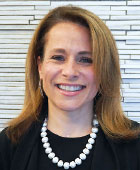Factors to Consider When You Step Outside Your Clinical Role
Abstract
When you commit to activities outside your usual clinical duties, be sure to know what’s expected of you and seek risk management advice when necessary.
Providing direct patient care may not be the only type of job psychiatrists might perform during their career. There are times when opportunity knocks or one searches for professional development and growth outside of everyday practice.
Physicians, though not solely defined by their profession, are expected to uphold the ethical norms including fidelity to patients and respect for patient self-determination, according to the AMA Principles of Medical Ethics. When one commits to other interests and obligations outside of the office, it is imperative to have clear guidelines and understanding of what is expected. Since people may primarily see you as a physician, you want to be sure your other roles and responsibilities are clearly known to limit the risk that might exist when stepping outside of the office or health care setting.
Whether offering services for community outreach with a religious organization, volunteering in an underserved area, or exploring an opportunity to sit on a charitable board, ask questions about the opportunity before committing. When you pivot between different roles, you want to be sure you know what “hat” you are wearing. For example, are you being recruited to provide clinical recommendations under your medical license or are you simply serving as a general advisory committee member at your child’s school? Using your expertise to help in the community can be rewarding, but psychiatrists must consider the liability implications before lending a hand. Below are some tips for mitigating risk when considering these roles.
Risk Management Tips to Consider
Understand whether the federal Volunteer Protection Act or state immunity laws and regulations protect you, since they vary widely by state. Although state immunity laws provide some protections for physicians who provide volunteer medical services, they do not guarantee that physicians will not be sued while volunteering their professional services. Consult with your local medical society, attorney, or risk management consultant for advisement.
If the role applies to organizations with locations and outreach in multiple states, validate whether your license is needed in those roles and whether you need to apply for licensure outside your state.
When performing volunteer services in environments with limited resources, understand how that can affect outcomes. Continuity of psychiatric care and patients’ compliance with visits can be challenging in terms of ensuring sustainability and consistency, which could lead to risk of litigation in the future.
Prior to committing to any board position, due diligence is essential to rule out any conflict of interest. Careful analysis of the benefits and risks—personal, professional, and organizational—are key. Does the mission of the organization align with your values? Will the reputation of the organization affect your practice? What are the activities, duties, and obligations being asked of you? How long is the board term? Does the organization have director’s and officer’s insurance to cover liability?
Determine whether the role requires you to act outside of your scope of practice.
Get it in writing! Whether it’s an agreement for services, memorandum of understanding, or bylaws to be followed, be sure that you and those you are serving appreciate the role you are holding. ■
Risk Management services are provided as an exclusive benefit to insureds of the APA-endorsed American Professional Agency Inc. liability insurance program. This information is provided as a risk management resource for Allied World policyholders and should not be construed as legal or clinical advice. This material may not be reproduced or distributed without the express, written permission of Allied World Assurance Company Holdings Ltd., a Fairfax company (“Allied World”). Risk management services are provided by or arranged through AWAC Services Company, a member company of Allied World. © 2022 Allied World Assurance Company Holdings Ltd. All Rights Reserved.




